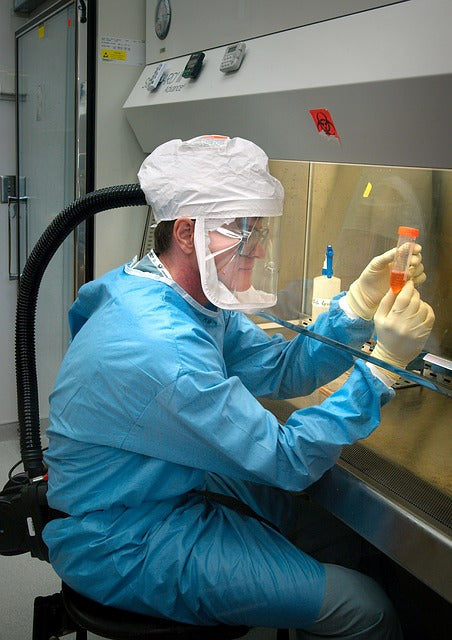
We May Have Discovered How to Beat This Antibiotic Resistant Superbug
If you’ve been on popular websites on the Internet over the last few months, you might have noticed a disturbing trend.
Stories of people losing limbs and flesh to antibiotic resistant bacteria are on the rise.
Sadly, I think these kinds of stories will continue to be reported, and with more and more frequency.
The reason is our over reliance on antibiotics has helped spawn some pretty dangerous bacteria. These bacteria are resistant to almost all known antibiotics… and this poses some serious health problems.
The worst part is it’s unlikely discovering a new antibiotic will fix the problem. Eventually, the bacteria will figure out a way to resist those too.
However, there might be some hope for us as we may have discovered the key to defeating these superbugs without antibiotics.
Part of the reason we struggle with these superbugs is because no matter what kind of antibiotic we throw at them, they always seem to avoid being taken down by it.
The good news is a team at Monash University believes they have discovered the molecular component by which some of these bacteria are able to evade antibiotic treatment.
The bug they were studying is the deadly staph infection known as 'Golden Staph.'
While this isn’t similar to the MRSA virus that eats flesh, this kind of staph wreaks havoc in hospitals as it infects people, invades the bloodstream and leads to death.
The discovery of learning how these bugs’ molecular movements allow them to evade antibiotics means we might be able to redesign antibiotics to knock them out.
To accomplish this...
“The researchers used the latest generation electron microscopes at the Monash Ramaciotti Centre for Electron Microscopy to image at the molecular level - for the first time - the changes that take place in superbugs that have become resistant to the most modern antibiotics.
Examining bacterial samples of antibiotic-resistant Staphylococcus aureus or 'Golden Staph' taken from a hospital patient, they compared data of a non-resistant strain with their counterparts overseas. These included Shashi Bhushan from NTU, Zohar Eyal and Nobel Laureate Professor Ada Yonath from the Weizmann Institute who won the Nobel Prize for Chemistry in 2009.
"Using the combined data we could rationalise how the bacteria escapes drug treatment by a really important hospital antibiotic and describe in molecular detail how it becomes like a superbug," said Monash BDI scientist and lead researcher Dr Matthew Belousoff.
"The bacteria mutates or evolves to change the shape of the molecule to which the antibiotic would bind so the drug can no longer fit there," Dr Belousoff said.
This process will buy us some time to help fight these deadly infections.
The one thing it doesn’t do is address the very important issue which is, we’ve grown entirely too reliant on antibiotics.
Antibiotics certainly serve a role in modern medicine.
But they’ve been over-prescribed to the point that not only are they ineffective against the diseases they’re supposed to help fight… they’re causing an extreme amount of harm.
Talk soon,
Dr. Wiggy
www.HealthAsItOughtToBe.com



